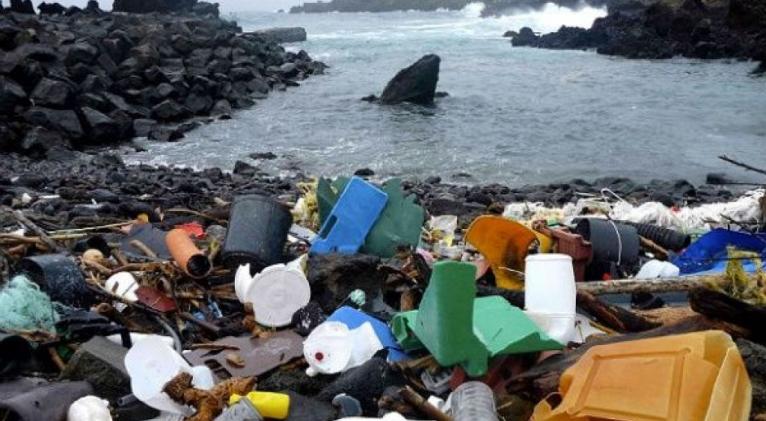Study: Seafood Lovers Consume Tens of Thousands of Plastic Particles Annually
especiales

According to a University of Ghent study, seafood lovers are consuming thousands of pieces of plastic each year.
Scientist found that, on average, a portion of mussels contains about 90 plastic particles – meaning two portions of mussels eaten weekly translates to roughly 11,000 plastic fibers annually.
University of Exeter's Adam Porter, said: “We piled up the thousands of plastics a regular seafood eater would consume in a year and the results were really quite shocking. People do not want to eat any plastic, let alone this amount.”
Plastic was found in almost every one of hundreds of mussels examined.
It remains unknown whether plastic passes from the stomach to body tissues.
Last week, the Marine Conservation Society said Britain is “choking in plastic.” The observation said there is a 27% increase in plastic and polystyrene items since 2008 across the UK coastline.
Plastic pollution is overwhelming Britain, making up close to 90% of litter on beaches. Plastic bottles accounted for 10% of litter found in the Thames.
“Plastic waste is out of control in London. It litters our parks, pollutes the Thames, harms marine life, and adds waste to London’s landfill sites, which may be full by 2025,” said environment committee chairman Leonie Cooper.
About 220,000 pieces of plastic were found along one 37-mile stretch of UK coastline. Among them were 2,509 cotton bud sticks, 13,115 drinks caps and lids, 3,109 drinks bottles and 81,000 additional unidentifiable plastic fragments.
The United Nations is taking major steps to reduce plastic pollution of the world’s oceans. Delegates preparing for the UN environment ministers’ meeting in Nairobi, Kenya, next week will explore options for global action to tackle plastic waste. The agency has committed to a substantial reduction of plastic waste by 2025.
Eirik Lindebjerg from the World Wide Fund for Nature said the meeting could prove a turning point in the crisis.
Scientist Adam Porter, said: “Many people blame beach users for not putting their litter in the bin, they blame fishermen for dumping waste, but our study shows the majority of waste is made up of fragmented plastics which have been in the sea for a long time and broken down – and these come from all of us.
“We need to use plastics responsibly, and they need to be recycled to protect the hundreds of animal groups known to be swallowing this waste.”
Exeter University study collected data from council workers who cleared beaches in North Cornwall between January 2005 and December 2011.













Add new comment